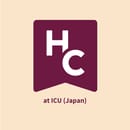The 23rd of May is “Nanbyo-Day” in Japan. “Nanbyo(難病)” is the Japanese term for intractable disease, and it stands for a difficult illness. The JPA (Japanese Patients Association) has registered this day to commemorate the establishment of the Act of Medical Care for Patients of Intractable Disease back in 2014.
I hope this day becomes an opportunity for you to listen to the patients’ stories, and think about how you could become an ally.
- What is a “Nanbyo”?
-
“Nanbyo”, or intractable disease, is an illness (many times chronic) of which the cause and cure are unknown. As it is a chronic disease, there is very heavy economic, domestic, and mental burdens of the patients and their families.
- Is it Really So Rare?
-
As it is a very unsettled field there are no specific statistics on intractable diseases and the number of patients who have them. However, because the causes are unknown, there is always a chance that every individual could develop an intractable illness. There are many cases in which the symptoms of such diseases cannot be obviously seen from a third party. There is a chance that a friend or classmate of yours could be fighting a heavy illness that you do not know of.
- Measures Against “Nanbyo”
-
The development of medical subsidies from the government and further studies on causes and treatment has drastically changed the lives of patients over the past few decades. The improvement of medical standards has improved the accuracy and speed of both diagnosis and treatment. This has allowed many patients to work and study like any other person within society.
However, the fact that patients deal with a whole lot of risks and anxiety due to their disease does not change. Many take extremely strong medication with heavy side effects, putting limits on their activities.
- My Experience
-
I became a “Nanbyo” patient in my first year of high school. I experienced very strong symptoms such as a constant sense of fatigue, loss of appetite, pain all over my body, difficulty breathing, etc. I was diagnosed with a rare disease with only about 6000 cases and an unknown cause. I suffered strong side effects from the medication I took and had to quit my biggest passion, dancing. It was an extremely hard time for me, both physically and mentally, but I am so thankful for the people that stayed by my side and helped me get through it. They are one of the biggest reasons I could motivate myself under the circumstances I was given. 4 years after I was first diagnosed, I still take very strong medication every day, and do self-injections at home every week.
The fact that I can live life almost just like everyone else my age has brought me a lot of self-confidence that I never had. Although there are many more obstacles waiting ahead of me, I am proud that I have learnt how to live with this disease at a young age.
I hope that this day becomes an opportunity to think about intractable diseases.
If I were to become a patient… If my friends or family were diagnosed…
No one should take their health for granted. It is not guaranteed and it is not given to everyone in the same way. There are countless people diagnosed and suffering from many illnesses every day; I hope that we can all cherish our health, and prevent diseases that can be done so!



